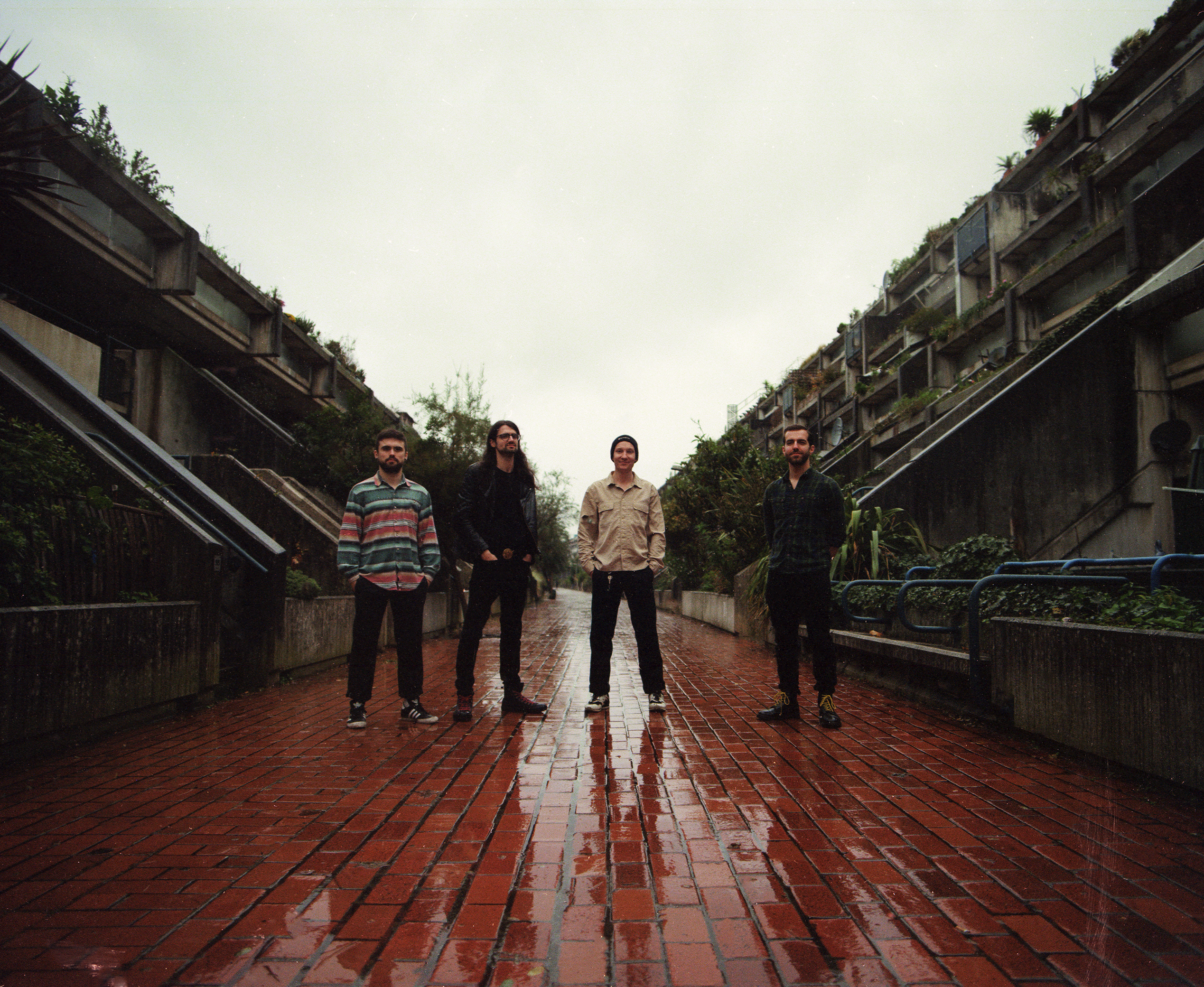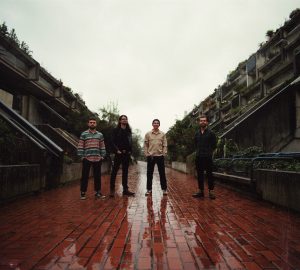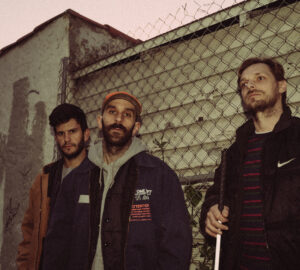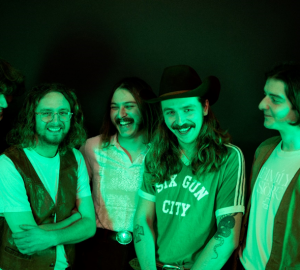Experimental metal quartet Asian Death Crustacean release their crushing debut album Baikal next month. Named after the world’s oldest and deepest lake, which is located in Siberia, Baikal takes a vast array of influences, from extreme progressive metal to electronic/ambient to jazz, and melds them to create a truly enthralling and unpredictable sound. We caught up with the band ahead of the release to discuss their formation, influences, first musical memories and more.
Firstly, tell us a bit about yourself and your band.
Rob: We’re a four piece experimental metal project based in London.
How did the band form and how long have you been together?
Dan: We’ve been together about six years. The project came together through fusing the remnants of a blackened death metal band that James (drums) and Rob (guitar) had been in and an instrumental jazz fusion group that James and I (guitar) had played together in. I’d also been jamming for years with George, who then turned out to be a great fit on bass and glued together some of the more contrasting influences of the project.
Can you remember the first time you realised you wanted to make music?
George: When I was fourteen someone put a bass in my hands while a Misfits song was on. After playing for a year or two, realising the crossover in bass playing between some Descendents records and a bunch of 60s pop and soul was a pretty inspiring learning experience, that firmly set me down the path of picking apart and smashing together disparate genres.
R: I remember coming across Necrophagist and being enraptured by the way Muhammed Suiçmez combined neoclassical and death metal to create an atmosphere that I’d never experienced before.
James: Discovering George Kollias’ drumming with Nile was mind-blowing, and seeing someone pushing the boundaries in that way definitely made me want to take playing more seriously.
D: Allan Holdsworth was someone who caused a real shift in my thinking around guitar playing. His unique sense of harmony and chord voicings really encouraged me to experiment, and introduced me to the idea that you can have a push and pull with clashing tones, creating a sense of tension and release.
Who and what are the band’s main influences?
G: The range of influences and musical backgrounds in the band has played a big part in giving it its identity. James and Rob come from a background in extreme metal, while Dan brought jazz and electronic influences into the project, and I grew up listening to 80s hardcore punk one minute and 60s soul the next. It seems sometimes like a band that shouldn’t exist, but we’ve always felt a lot of freedom to take whatever direction we want in weaving our influences together.
What do you aim to achieve as a band?
J: We’d love to have a discography in the end that shows the project continuing to develop and bring more elements into the melting pot.
For those who are yet to see you live, what can they expect from an Asian Death Crustacean show?
D: In the past we’ve experimented with projections and we’d love to find ways like that to make the live show a cool visual experience. We’re also keen to fully integrate all the ambient/electronic elements from the record into our live set.
What’s next for Asian Death Crustacean?
R: Aside from releasing and promoting the album, we’ve been figuring out ways to work together remotely and use the lockdown time to experiment with jams and songwriting, as well as preparing as much as we can for the time when live shows are possible again.
Asian Death Crustacean‘s debut album Baikal is due for self-release on 26th June 2020.





